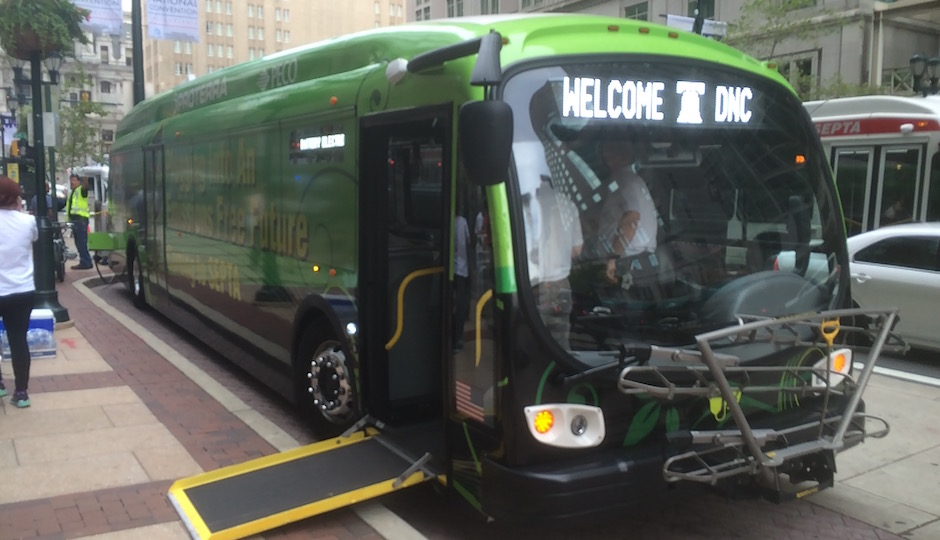SEPTA Shows Off Quiet New Electric Bus to Public

Photo: Sandy Smith
While it was busy getting the crowds to and from the Democratic National Convention, SEPTA took time out on Thursday (July 28th) to show the locals and visitors a glimpse of the future.
That glimpse took the form of a Proterra Catalyst battery-powered electric bus parked in front of SEPTA’s Center City headquarters in the middle of the day.
SEPTA ordered 25 of these buses in late April after winning a Low or No Emission Vehicle Deployment Grant from the Federal Transit Administration. SEPTA used the grant, which totals $2,585,075, to cover the difference in cost between the more expensive battery-electric buses and the diesel-electric hybrids it normally buys.
Unlike most FTA grants, this one allowed transit agencies to specify partners for vehicle supply and procurement. SEPTA began talks in 2014 with PECO Energy about obtaining electric buses from Proterra, a South Carolina-based company in which PECO parent Exelon holds an investment stake.
The buses SEPTA is buying are the Proterra models that are designed to charge quickly for use in round-the-clock service. Proterra says these buses can travel 50 miles in light traffic, or 30 miles in city conditions, before requiring a recharge.
SEPTA plans to deploy the buses on its two South Philadelphia crosstown bus routes, Route 29 on Tasker and Morris streets and Route 79 on Snyder Avenue. The purchase price includes the charging stations needed to recharge the batteries both at the ends of the lines and at the bus depot. In regular service, the batteries can be fully recharged in five minutes. The batteries are charged via contact between an overhead supply cable and a metal contact box mounted on the roof of the bus.
“Because the bus body is made of composite materials, the bus can charge while picking up and dropping off passengers,” said PECO spokesperson Ben Armstrong.
On a test ride around Center City, the bus was extremely quiet, with the only noise coming from its air conditioning unit. Because it has only the batteries and a traction motor under the rear seats, it also has a low center of gravity and thus rounds corners more smoothly than the hybrids.
The new buses will enter service next year.
Follow Sandy Smith on Twitter.


